The All Party Parliamentary Group for Shipbuilding and Ship Repair has launched a report on the National Shipbuilding Strategy.
The report can be downloaded here.
The report states that the industry is already facing significant redundancies as the aircraft carrier programme runs down, with the subsequent loss of leading-edge skills. Once lost, these skills cannot be quickly regained and the UK’s sovereign capability to produce complex warships will suffer accordingly, as will the UK’s ability to project naval power.
The APPG states that “it is the responsibility of the Government to ensure the Royal Navy receives its equipment from a leading-edge supply chain and support structure and is therefore able to maintain its operational advantage.”
The report further calls on the Government to factor in revenue returned to the Treasury when scoring bids between domestic suppliers and foreign competitors and to acknowledge that many foreign shipyards receive both direct and indirect state subsidies.
The report also states:
“The Royal Navy depends on support ships operated by the Royal Fleet Auxiliary (RFA) during deployments. Royal Fleet Auxiliary Solid Support Ships are designed to carry a wide range of stores to support other ships in the fleet including munitions, fuel and supplies. To maintain a sovereign naval capability, consisting of all types of ships, building vessels operated by the RFA is crucial for the retention of skills needed for future warship production. Despite this, the National Shipbuilding Strategy states that only Royal Navy destroyers, frigates and aircraft carriers will continue to have a UK-owned design and be built and integrated in the UK.
As such, the Government has decided to open the procurement process for three new Fleet Solid Support (FSS) ships out to international competition with Navantia, a Spanish state-owned shipbuilding company, considered the frontrunner. The MoD states that European Union protectionism rules prevent the FSS contract being run as a UK-only competition.
The Government also believes that it can obtain lower costs and force higher levels of efficiency from domestic shipbuilders by tendering on the international market. Despite concerns raised in Parliament and by trade unions, the Government has no plans to issue any further definitions for the purposes of the National Shipbuilding Strategy. Research conducted by GMB shows that ‘warships of all kinds’ are not subject to compulsory competitive tendering.
Article 346 of the Lisbon Treaty states that ‘Any Member State may take such measures as it considers necessary for the protection of essential interests of its security which are connected with the production of or trade in arms, munitions and war material.’ The MoD alone is responsible for its definition of
warship.”
Based on evidence from experts in the field, the report calls on the Government to ensure domestic yards receive the Fleet Solid Support Ship Contract in order to ‘retain the skills needed to construct, refit and upgrade complex warships in the future’.


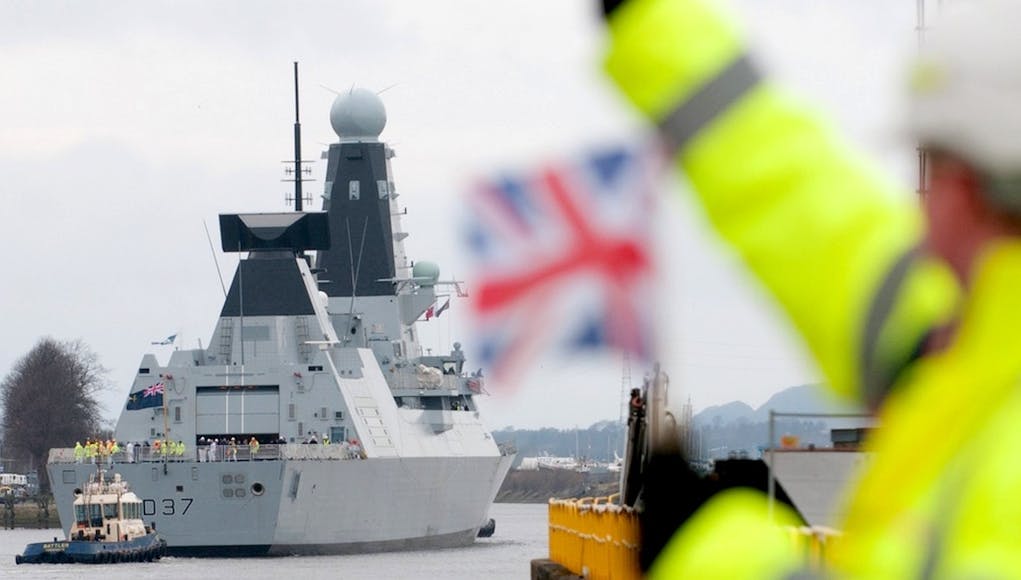
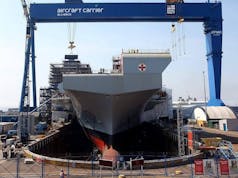

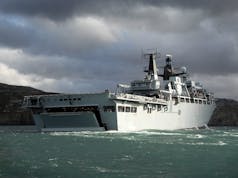
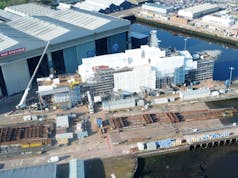
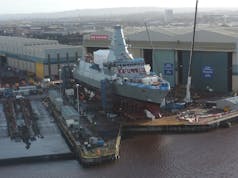

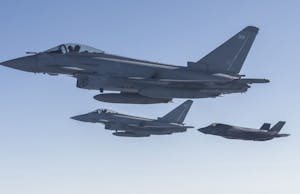









Apart from being the most obvious strategy, why is it taking so long to clarify the, national shipbuilding issues? All that is required is legislation to strictly control future Royal Navy shipbuilding,(of all vessels regardless of role) to ensure, that Britsih yards are given the first choice on every project as a matter of default.
The reports an interesting read but a little contradictory. For instance it says BAe is charging the MoD high prices because there’s no competition left. Yet the there’s only one consortium to build the SSS. If they suggesting the work is spread around then what happens when a yard inflates the cost? Does the MoD then go to another yard? That’s a competition. The following was interesting and again contradictory. essentially the steel bashing is of limited value and the complex systems are where the value is. Yet they advocate the build of other non complex ships to be done… Read more »
This is a statement of the obvious. What is ridiculous is that the Parker report suggested just this. It was published at least three years ago, to much nodding and good words from the government. Result, nothing.
We really do need people at the top with some vision and long term thinking, at the moment I wouldn’t credit any of them to run anything more complex than a bath.
The Lisbon Treaty is irrelevant people. Unless the government really plan on betraying the electorate, as opposed to being simply incompetent.